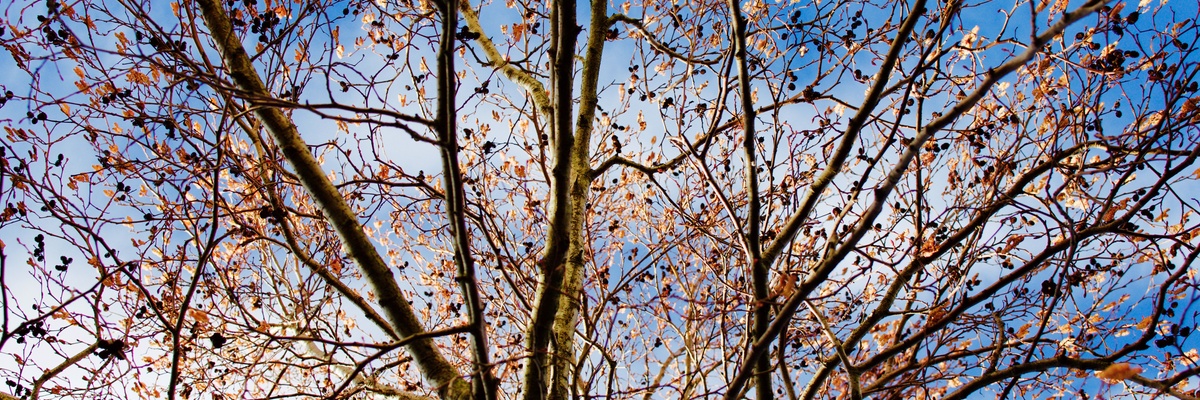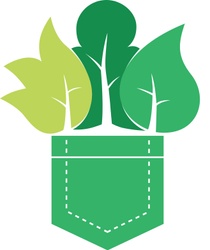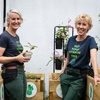Identifying your Pocket Forest site
In identifying a suitable space, here are some important factors you should consider:
- You need to ensure there are no pipes under the soil or overhead power lines, so it can be best to check with your local authority about the services in the area.
- Check to see if the site contains builder's rubble - use a fork or spade to dig down. A spade's depth is needed without any major rubble.
- The site should be able to easily accommodate 25 square metres (5m x 5m) of 75 densely planted native trees and shrubs.
- You'll need permission from the owner of the site to plant a forest.
Designing your Pocket Forest
The Pocket Forests team will lead the project for you. After selecting your site, get in touch with the Pocket Forests team and we will come to your site to help you measure out and design your forest.
Pocket Forests order all the materials needed to create your forest including the trees and shrubs.
Pocket Forests team leads a soil preparation workshop
A small team of people to work with the Pocket Forests team will be needed to prepare the soil. Community involvement is one of the key pillars of any Pocket Forest. People with no experience of gardening or forests can participate in these workshops which takes place between September and November.
You'll need at least 10 volunteers but of course the more the merrier! Your team will need to start collecting some of the materials needed for the workshop. These include:
- used cardboard (with all plastic tape removed); bike shops are a great source as they have plenty of large heavy duty plain cardboard from bike boxes. Approximately 40-50 of these will be needed (approx 10-12 if sourcing bike boxes)
- garden forks, gloves and spades. Please do not buy these especially. If you have them or can borrow them, bring them along. We have a small supply of tools for use.
- grass cuttings, leaf mulch and home-made compost (not essential but if your community has them available we like to use them)
Pocket Forests will source all other materials needed. The Pocket Forests team will also be there throughout the day to help. You may want to check if you need public liability insurance to work with volunteers and also liaise with the Pocket Forests team for Garda clearance for working with a school.
Picture your Small Pocket Forest
We will talk you through the options for designing your Small Pocket Forest.
Once you've done this and you have a plan in place for the area you can ask your team to gather some of the materials you will need for the soil preparation. These include:
- used cardboard (with tape removed) bike shops are a great source as they have plenty of large heavy duty plain cardboard from bike boxes
- small untreated logs and sticks - local tree surgeon or arborist can be happy to donate these or they can be foraged in the area.
- compost
- grass cuttings, leaf mulch and home-made compost
- coffee sacks - find your local roaster and ask for their empty jute sacks. They should be happy to supply these.
Pocket Forests team leads a planting workshop
A small team of volunteers to work with the Pocket Forests team will be needed to plant the trees. Community involvement is one of the key pillars of any Pocket Forest. The collaboration of the trees is reflected in the collaboration of the people who plant them. People with no experience of gardening or forests can participate. This is planting with low-maintenance and high-enjoyment of the forest!
You'll need at least 5 volunteers but of course the more the merrier! Your planting workshops take place between December and February in the bareroot season.









 "Welcome to Pocket Forests. We want to help your school, business or community create a native pocket of biodiversity on your doorstep. Collaborate with friends, colleagues or neighbours to bring a forest to your part of the city. Find out more about how it works."
- Ashe Conrad-Jones and Catherine Cleary, co-founders of Pocket Forests
"Welcome to Pocket Forests. We want to help your school, business or community create a native pocket of biodiversity on your doorstep. Collaborate with friends, colleagues or neighbours to bring a forest to your part of the city. Find out more about how it works."
- Ashe Conrad-Jones and Catherine Cleary, co-founders of Pocket Forests
